#Black wolves Saga Last Hope
Explore tagged Tumblr posts
Text
Figured I'd answer these questions about my WIP, maybe even turn it into a tag game. Because what is a tag game, if not writing homework but fun?
So, if Y'all like, @chauceryfairytales @steh-lar-uh-nuhs and @a-had-matter feel free to answer with as much or as little detail as you care to, and pass it on!
For this one, it's Edward. In his normal world, he is married to his wife, the first person who ever loved him romantically, and is clearly very straight, not that he's thought about it.
The main thing that is important to Edward is Bella, and his relationship to her. Secondarily come his obligations to his "father", his sister (Alice), and his daughter. Coming in third are his obligations to the rest of his family, the treaty he signed with the wolves, and concerns to do with the Volturi.
The Twilight Saga. Why did I not write fanfiction before.
He needs to become more accepting of other's needs. He assumes because he can read your mind he knows what's best for you, and sir... no...
An unfortunate human by the name of Thomas shows up in the Cullen's house. He was so very gay for Edward the first time he went to school with Rosalie, and a series of misunderstandings and intercepted communications led him to believe that it would have been reciprocated, if not for Edward being closeted AF. His gift, such as it is, allows his desires to outlive him, so even though he committed suicide when Edward left mysteriously, he has been following behind him, at the very slow pace of a ghost, losing him, finding him, losing him again ever since. Since Renesmee was born has been the longest the Cullens have stayed in one place since the last time they were here, and also Thomas just got lucky. Edward, would not like to deal with this homosexual apparition, but has no earthly idea how it he might be rid of it.
Edward is confronted by both the notion that he appeared gay enough that this kid believed he was also interested (he was), that it's not just Bella's shield that made her immune to his Very Scariness, and that somehow he missed this as the time despite having full access to Thomas's thoughts. If it were up to him, he would get to continue to live in blissful ignorance of these facts, but he can't leave Bella or force her to go, and Thomas isn't leaving so perhaps he'll have to character develop after all until he has the emotional intelligence to lay Thomas to rest.
This is the entire plot. Shhh, no spoilers.
The real antagonistic force was Edward's staggering ability to spend all his time introspecting without actually learning anything about himself.
"Not hope, exactly, but a desire to hope"- Jacob Black, inner thoughts, Breaking Dawn Pt.2. Edward may not have changed, but the obstacles have been beaten down. It's up to him to change now, for the people he so terribly loves.
Thomas is laid to rest successfully, as he at least understands what Edward can and wants to give.
How Much World Building is Too Much?
Anonymous asked: This question is on behalf of my cousin who came to me for advice. When he has an idea, he writes the most detailed worldbuilding EVER, designs the characters and has a general idea of how the story will go, but then when he starts writing he does maybe 2 chapters and it dies. I, on the other hand, do ZERO worldbuilding ahead of time (I don't need much) and end up finishing 80% of what I start out to write. How do you know how much worldbuilding is enough? How do you keep from spending so much time planning that by the time you get to writing, you don't know where you're going with the actual story? I want to help him but our styles are so different, I don't know where to start.💔
(Ask edited for length...)
I identify with your cousin a lot, because this is often how my stories go. I'm first inspired by a place, or the idea of a place, and everything sort of grows out from there. In my early days, I would also pour everything into world building and character creation, only to find myself falling flat with the story. And a big part of that, I learned, was that I didn't really understand how stories worked. It was easy to build a world and set up characters, but since I didn't understand story structure, I didn't understand how to flesh out the nugget of a story idea I had to go with that setting.
So, one thing you might do is try to get a feel for where your cousin is in that respect. You can start by asking pointed questions about the potential plot, and if he doesn't have answers already, it will help guide him in that direction. Some questions I would ask:
1 - Who is your protagonist? What is their "normal world" life like before things are turned upside down with the inciting incident?
2 - Who and what is important to your protagonist? (Stakes)
3 - What past experiences have led to them being who they are now?
4 - What needs to change about your protagonist's life, beliefs, or values?
5 - What happens to turn your protagonist's world upside down? (Inciting incident) Who (or what) causes this to happen? (Antagonistic force)
6 - How does this affect your protagonist specifically, and what goal do they decide to pursue in order to resolve the problem?
7 - What steps does your protagonist plan to take in order to reach their goal? What knowledge, skills, resources, or help must they acquire in order to achieve their goal?
8 - What obstacles does the antagonistic force create that the protagonist must overcome on their way to the goal?
9 - How do the events of the story help to change your protagonist's life circumstances, beliefs, or values for better or worse? How will they change by the end of the story?
10 - How does your protagonist face off against the antagonistic force, attempting to defeat them once and for all in order to reach their goal? Are they successful? What is the aftermath and how is the character's world/life changed--for better or worse--as a result of these events?
If your cousin can answer these questions, they'll have a reasonably well fleshed out plot that should help carry them through the story. How little or much planning of the plot ahead of time they need is something they'll need to discover over time, but if the above isn't enough to help them get through the story, they might want to go back and flesh out the specific plot points. You can point them in the direction of my post Creating a Detailed Story Outline, which suggest several different story structure templates they can look at to help them coax out the specific plot points of their story. And, bear in mind that story structure templates do not have to be followed exactly. They're just a guide to help you flesh out the story. Many writers like to combine different elements of different plot structures as a loose guide as they write their stories.
I hope this helps!
•••••••••••••••••••••••••••••••••
I’ve been writing seriously for over 30 years and love to share what I’ve learned. Have a writing question? My inbox is always open!
LEARN MORE about WQA
SEE MY ask policies
VISIT MY Master List of Top Posts
COFFEE & COMMISSIONS ko-fi.com/wqa
175 notes
·
View notes
Text
Black Wolves Saga Last Hope Memory 216: Arbitrario [Ruta gatos]

A pesar de tener a aquel par de figuras debilitadas enfrente de ella, la protagonista no desea extenderles su mano.
No ayudarlos
Fiona: …
¿Por qué será? Los tengo en frente de mí en un estado de debilidad, pero mis piernas no se mueven.
Incluso si puedo tenderles mi mano no deseo ayudarlos.
—Para ser precisos, estoy dudando.
Fiona: …
Lo único que hice fue dejar de esconderme tras el árbol. Me dirigí al lugar en donde esos dos colapsaron.
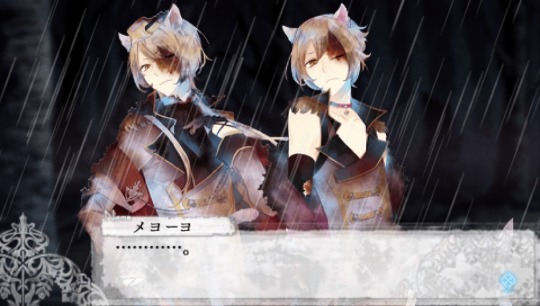
Mejojo: …
Auger: …
Ambos estaban tirados en el suelo sin moverse. Parece que tampoco podían hablar, no decían ni una sola palabra.
Pero sus miradas parecían rogarme que los salvara.
Fiona: …
—Y aun así, era incapaz de moverme.
No puedo acercarme a Mejojo y a Auger.
Guía: ¡Fiona-sama! ¡Señorita! ¡¿En dónde está?!
Fiona: ¡¿?!
Escuché la voz del guía desde otra dirección. Me sorprendió tanto que mis hombros se entumecieron.
Fiona: (¿Qué… hago?)
Puede que aún sean capaces de salvarse. Eso pensé.
Si le pido ayuda a la persona que me está buscando, entonces podría salvar a estos dos— podría salvar a Mejojo y a Auger.
Pero… en vez de eso.
Fiona: ...
Me di la vuelta sin decir ni una palabra y dejé a Mejojo y a Auger atrás.
Y corrí hacia donde estaba la persona que gritaba mi nombre.
…Ninguno de los dos me habló.
*luego*
Guía: ¡Fiona-sama! ¡Parece que algunos de los pelotones que estaban cazando a los lobos siguen acechando esta zona!
Fiona: Ya veo… Que alivio, así que hay gente que logró salvarse.
Guía: Sí, aunque todavía desconozco qué fue lo que sucedió… ¿Fiona-sama?
Fiona: ¿Eh? ¿Qué?
Guía: ¿Sucedió algo? Es que… luce pálida.
Guía: Y su expresión es algo sombría… ¿Acaso se siente enferma?
Fiona: No… No es nada,
Dije eso mientras negaba con la cabeza.
Esta es mi elección. Es el camino que he elegido.
Creía que esto era lo correcto… fue mi decisión.

Fiona: Estoy bien de salud. Solo estoy algo cansada.
Fiona: Más importante, debemos apresurarnos y reunámonos con el resto.
Fiona: Quiero darme prisa y hablar con Nesso y los demás… quiero saber si están bien y relajarme.
Guía: Ah, sí, tiene razón. Entonces andando. Es por aquí.
Fiona: Sí.
El guía no se percató.
—De que los príncipes gemelos se encontraban desmayados a unos pocos metros de distancia.
Poco después.
Finalmente conseguí reunirme con los demás.
Lugar: Cabaña en la montaña
Fiona: ¡¡Nesso…!! ¡Estabas a salvo!
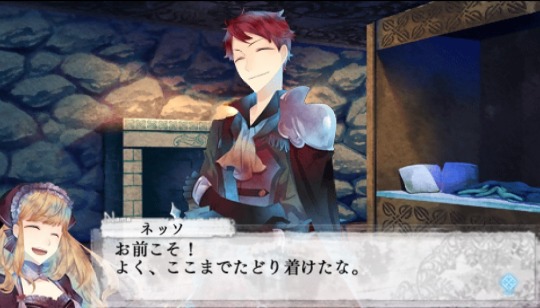
Nesso: ¡Lo mismo digo! Me sorprende que lograras llegar hasta acá.
Salté hacia el pecho de Nesso, quien me recibía con los brazos abiertos. Finalmente soy capaz de suspirar con alivio.
Ya estoy tranquila. Ya no tengo nada de qué preocuparme.
De aquí en adelante Nesso me protegerá. Y también Zara.
Fiona: Fue gracias a nuestro padre. Uno de sus leales subordinados me guío hasta aquí.
Nesso: Ya veo… que bien. Realmente me alegro… Me alegro de que al menos tú estés a salvo.
Fiona: Por cierto, ¿qué sucedió?

Zara: Los lobos incendiaron el bosque y nos acorralaron.
Fiona: ¿Lo incendiaron…?
Zara: Es la estrategia de los lobos. Se prepararon para morir y le prendieron fuego al bosque de Zanan.
Zara: …Probablemente estén al borde de la extinción.
Zara: Además, esta es una zona seca… el fuego no tardó en esparcirse.
Fiona: Oigan… ¡¿No les paso nada?! ¡¿Qué hay de Pearl, Richie y Elza…?!
Nesso: Sí, nosotros estuvimos a salvo. Todo gracias a Zara, él se percató del fuego.
Zara: Mi sentido del olfato es especial. Gracias a mi trabajo de farmacéutico puedo reconocer cualquier olor.
Zara: Sin embargo, a pesar de que apenas e inhalé humo terminé sintiendo dolores de cabeza.
Nesso: Nuestros ojos ardían y nuestras gargantas dolían, era terrible.
Zara: Quien imaginaría que el capitán de los caballeros Gefreiter sería vencido por un poco de humo, patético.
Nesso: Jaja, ¿tú vas a decirme eso? Acabas de decir que el humo te mareaba.
Zara: Yo soy más sensible que tú. No me compares contigo.
Nesso: Eso es verdad.
Verlos conversar como de costumbre provocó que hiciera una mueca de felicidad.
Ellos no han cambiado. Ese simple hecho me aliviaba.
Fiona: …Me alegro de que estén a salvo.
Tras preguntarle a Nesso y a Zara sobre la situación finalmente fui capaz de comprenderla.
En resumen, los lobos le tendieron una trampa a Mejojo y a Auger, los atacaron desde distintos flancos e incendiaron todo.
Nesso: Solo queda un problema, nosotros y la mayoría de los caballeros Gefreiter estamos a salvo.
Fiona: ¿Y el problema es?
Zara: Que Mejojo-sama y Auger-sama siguen desaparecidos.
Fiona: ¡…!
Por un momento creí que se me cortaría la respiración.
Fiona: (…No hay forma de que los encuentren.)
Ya que colapsaron en esa zona y eran incapaces de moverse.
Nesso: Le di la orden a los caballeros de Gefreiter para que revisen la zona y los busquen… aunque solo lo hice aprovechando la confusión.
Zara: Después de todo aún no has recuperado tu título de capitán.
Nesso: Pero todos escucharon mis órdenes. Se los agradezco.
Zara: Ser popular tiene sus beneficios.
Fiona: …
Nesso está buscando a los príncipes gemelos.
…A pesar de todo lo que le hicieron pasar.

Fiona: …Espero que los encuentren.
Nesso: Sí. Su majestad Mejojo es el príncipe heredero y su majestad Auger es el segundo sucesor.
Nesso: Si no confirmamos su bienestar Weblin entrará en un estado de caos.
Garibaldi VI está enfermo y tiene que permanecer en cama. Es por eso que Mejojo y Auger estaban a cargo del reino.
Incluso si sus acciones eran cuestionables, si las personas a cargo del control de Weblin desaparecieran de repente.
—El resultado no sería difícil de imaginar.
Fiona: Sí… Tienes razón.
Yo también soy consciente de ello. Lo sé, pero aun así.
…Era incapaz de mencionar el paradero de Mejojo y Auger.
—Y entonces, al día siguiente. Encontraron a Mejojo y a Auger en las profundidades del bosque.
En el lugar en donde los vi por última vez.
Ninguno de los dos respiraba—
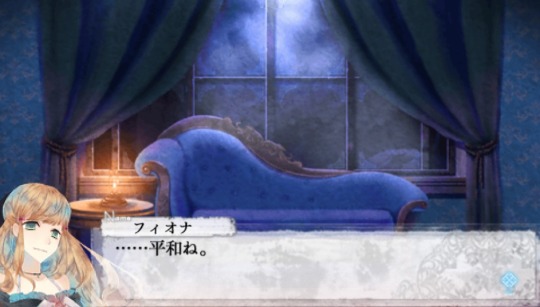
Lugar: Living de la torre de Scharlmesen
Fiona: …Cuanta tranquilidad.
Pearl: ¡Sí!
Richie: Eso es bueno.
Fiona: Sí, tienen razón.
—Ha pasado un tiempo desde aquello.
Regresé a la torre de Shcarlmessen y recuperé mi vida diaria.
Ahora puedo salir y hacer lo que me plazca.
Junto a Zara, Pearl y Richie.
—El fuego siguió ardiendo durante siete días y siete noches. Aquel incendio que acabó con el ejército real fue nombrado como “el incendio purificador de Zanan”.
La batalla contra los lobos llegó a su fin.
Tal y como Nesso anticipó, luego de que los príncipes herederos fallecieran en batalla Weblin entró en un estado de caos.
Aunque irónicamente, gracias a ese caos la familia Galland logró salvarse.

Nesso le ordenó a los caballeros Gefreiter que se encontraban casi ilesos que controlaran el caos en Weblin y fue elogiado por ello.

Gracias a sus logros rápidamente levantaron la orden de encarcelamiento de mi padre. Aunque puede que también se deba a que Mejojo, la persona que sugirió que lo apresaran, había fallecido.
Tras ser liberado de prisión, mi padre cumplió con su lealtad y apoyó a Garibaldi VI durante su lecho de muerte.
Y entonces—
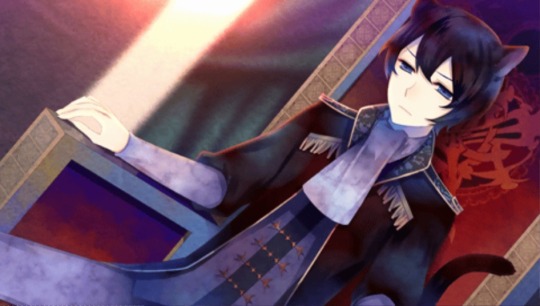
Sorprendentemente, Julian era el hijo primogénito, el heredero al trono que había sido desheredado.

Gracias a él, el caos en Weblin logró disolverse por completo.
Ya que se decidió que Julian sucedería a Garibaldi VI.
Actualmente Nesso se encuentra ocupado yendo de un lado a otro al ser tanto el líder de los caballeros como el asistente de Julian.
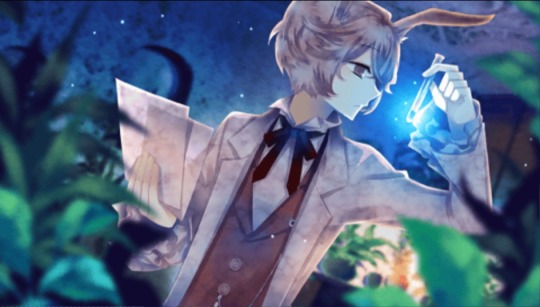
También— En los laboratorios del castillo Zara encontró un fármaco preventivo contra el zodiva.
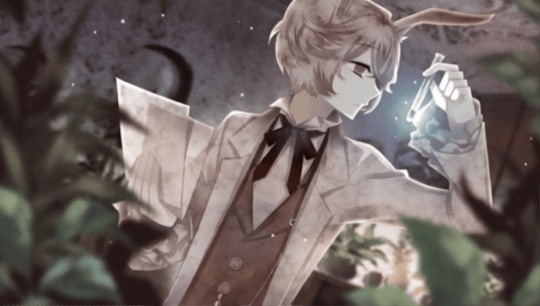
Zara estudió la prescripción de ese fármaco y se la envió a varios médicos.
Obviamente lo hizo para poder erradicar el zodiva de Weblin.
Al parecer sus efectos fueron esparciéndose de a poco. Zara me lo dijo lleno de orgullo, era algo de lo que alegrarse.
Y… Desde aquella última batalla no se ha vuelto a ver ni un solo lobo en Weblin.
Es posible que hayan abandonado Weblin.
A cambio de haber logrado enterrar a los príncipes gemelos.
*aullido*
Fiona: Ah…
Escuché un aullido desde la distancia, así que miré por la ventana.
Una hermosa y redonda luna llena flota en el azulado cielo nocturno. Una preciosa luna sin ningún fragmento faltante.
Pearl: Oh, volví a escucharlo. Es un aullido.

Richie: Sí. ¿Pero por qué será? Suena un poco triste.
Pearl: Sí, yo también lo percibo así. ¿Por qué será?
Richie: Debe sentirse desolado.
Pearl: Ya veo, se siente solo.
Richie: A pesar de toda esta paz.
Pearl: A pesar de que es una noche hermosa.
Richie: Debe de estar solo.
Pearl: Ya veo. Eso es triste.
Richie: Sí. ¿Sabes? Yo no me siento solo, ya que te tengo a ti y a Fiona-chan.
Pearl: ¡Yo siento lo mismo!
Volví a mirar la luna mientras escuchaba a Pearl y a Richie.
Aquel aullido sonaba como un llanto. A pesar de que no debería estar solo.
Pero era cierto que sonaba triste. Los lobos deben de sentirse desolados. Después de todo tuvieron que alejarse de las tierras en donde se criaron.

Fiona: …Rath.
Mientras observaba la redonda luna la imagen del joven lobo que conocí se superpuso sobre ella.
Fiona: (Al final no logré comprenderlo.)
Pensé que seríamos capaces caminar juntos. Al final eso no fue más que un sueño.
Fiona: Espero que podamos volver a vernos.
Le pedí ese deseo a la luna.

*aullido*
Aquel aullido que resonaba en el distante cielo sonaba como una respuesta a mi deseo.
-Fin-
Anterior: [214 Miseria]
[Masterpost]
#black wolves saga last hope#black wolves saga#fiona galland#mejojo von garibaldi#auger von garibaldi#nesso galland#zara skeens#julian#memory 216#traducción al español#mi traducción#pearl & richie#neutral end
14 notes
·
View notes
Photo


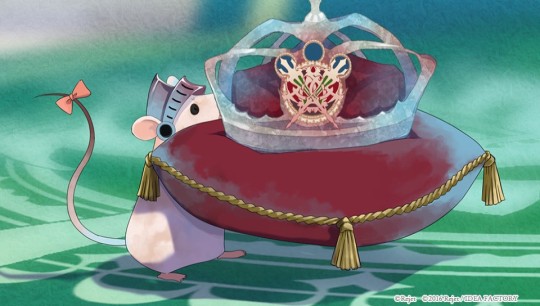

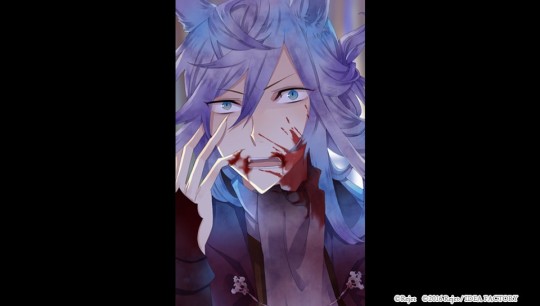
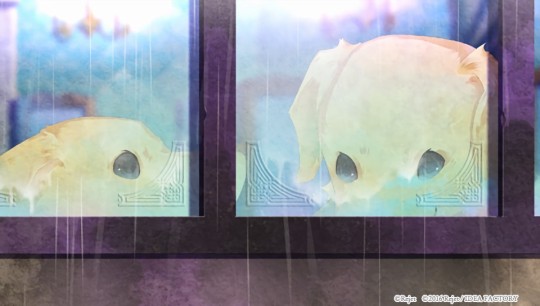


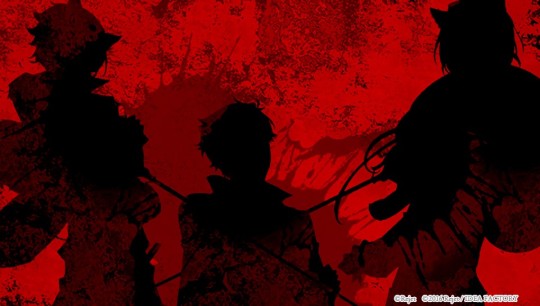

Black Wolves Saga -Weiβ und Schwarz-
Other - CG
#Black Wolves Saga CG#Black Wolves Saga -Weiβ und Schwarz-#Black Wolves Saga#Black wolves Saga Last Hope#otome#otome game#cg art#my post#my cg#Otome Game CG#rejet#otomate#Idea Factory#Kuroyuki#Auger von Garibaldi#Mejojo von Garibaldi#Nesso Galland#Richie (Black Wolves Saga)#Pearl (Black Wolves Saga)#Arles V. Felnoir
36 notes
·
View notes
Photo
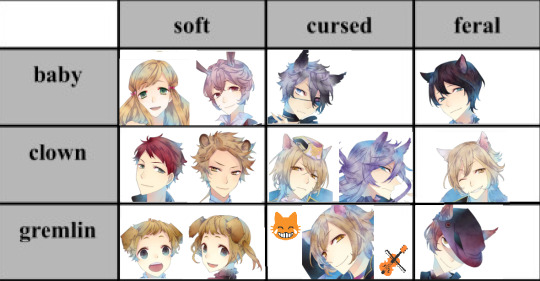
~my contribution to this dead fandom
#black wolves saga#otome#bws#rejet#auger gets two frames because he's a troll#otome stuff#black wolves saga bloody nightmare#black wolves saga last hope#vn#my posts
31 notes
·
View notes
Photo
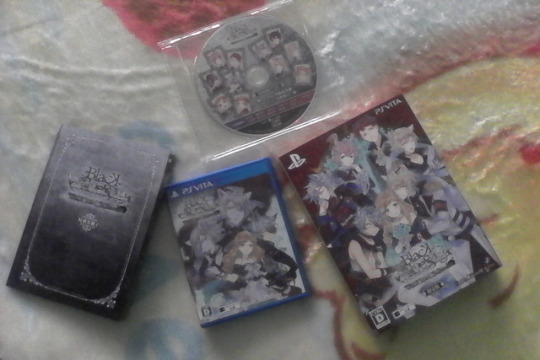
Yay!!! Llegó hoy, al fin! *---* Ahora, esperaré hasta el fin de semana para jugar x’D
Me encantaría traducir los CD Drama! Más el Gakkuen, Nesso y sus celos <3
#black wolves saga#black wolves saga bloody nightmare#black wolves saga last hope#otome#tokuten cd#otome game#otomate#rejet
6 notes
·
View notes
Text
Black Wolves Saga -Last Hope- [VNR PPSSPP English Translations]
Hello all,
This is my first post! And my first big project debut is *drum rolls* BWS -Last Hope-! Since Black Wolves Saga -Bloody Nightmare- is fully translated now by orlandoblue, I’ve decided to begin translating Last Hope on the PPSSPP through the Visual Novel Reader (VNR). Some of the early parts of the game have already been translated by me. Currently, I’m working on Zara’s route. If you want to contribute to the translations as well, feel free to let me know. If you have some corrections for me, feel free to let me know, too. Otherwise, I’ll be adding more translations sporadically and posting updates whenever I can.
Until next time,
Eirrir
#otome game#black wolves saga#ppsspp#translations#visual novel reader#psp#vnr#rejet#otomate#BWStranslations#black wolves saga last hope
107 notes
·
View notes
Text
Black Wolves Saga: Bloody Nightmare Review
Black Wolves Saga: Bloody Nightmare Review
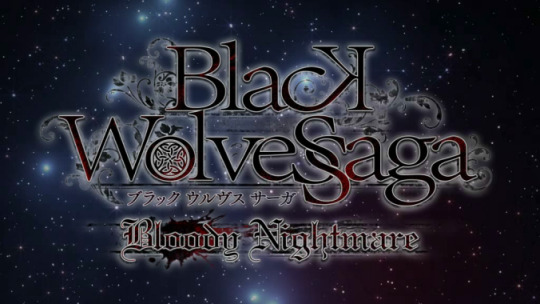
BLACK WOLVES SAGA ~ BLOODY NIGHTMARE
Release Date: April 26, 2012 (Japan) Developers: Rejet, Otomate Publishers: Otomate Platforms: PC, PSP, PS Vita, CERO Rating: D (+17)

This blog has been on hiatus for months (been playing too much rpgs that my otome gaming has been paused for as long as I can remember), but alas! Here we are, trying to get back on track for another otome review. Today,…
View On WordPress
#black wolves saga bloody nightmare#black wolves saga review#bloody nightmare#last hope#Otome game review#PS Vita#rejet
6 notes
·
View notes
Photo

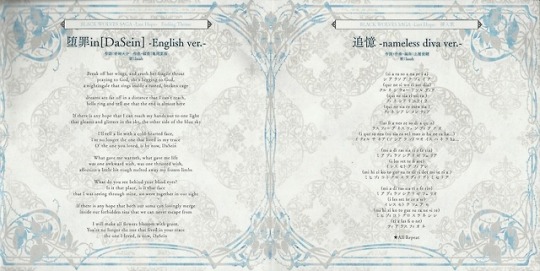
These are scans of the lyrics from the Black Wolves Saga Tears CD.
20 notes
·
View notes
Text
Utter(ly) Random: Getting the Axe
HAPPY NEW YEAR!!

Many shows are wrapping up as we head into the new year, hello 2023. While a lot of us are looking forward to what new shows are coming out and returning shows, for some shows that excitement has been squashed. Below I'm listing the shows that unfortunately have received the axe and won't be returning to their respective platforms.
Shows with an asterisk (*) are not "getting the cut" unexpectedly, but getting their last season.
CBS

Good Sam
B Positive
How We Roll
The United States of Al
Magnum P.I.
Bull*
All Rise
Clarice
SEAL
Beyond the Edge
THE CW

Legacies
Charmed
The Legends of Tomorrow
Naomi
4400
Dynasty
Roswell, New Mexico
In The Dark
Batwoman
The Republic of Sarah
Supergirl
Nancy Drew*
The Flash*
DC's Stargirl
Legends of the Hidden Temple
Riverdale*
NBC/PEACOCK

Mr. Mayor
The Endgame
Manifest*
Kenan
This Is Us*
Good Girls
Ellen’s Game of Games
A Little Late with Lilly Singh
Ordinary Joe
New Amsterdam*
Saved by the Bell
The Lost Symbol
ABC

black-ish*
Promised Land
Queens
Card Sharks
The Celebrity Dating Game
For Life
The Hustler
Match Game
Pooch Perfect
A Million Little Things*
FOX/FX
The Big Leap
Better Things
Atlanta*
Snowfall*
The Real
Duncanville
Monarch
SHOWTIME
American Rust
Black Monday
Work in Progress
Desus and Mero
NETFLIX

Another Life
Archive 81
The Baby-Sitter’s Club
Bonding
Cooking with Paris
The Crown*
Derry Girls*
Genetefied
Grace and Frankie*
Julie and the Phantoms
Locke and Key*
Ozark*
Peaky Binders*
Pretty Smart
Raising Dion
Space Force
Never Have I Ever*
Stranger Things*
Dead to Me
The Imperfects
Blockbuster
The Midnight Club
Firefly Lane
The Umbrella Academy
On the Verge
Fate: A Winx Saga
Warrior Nun
The Bastard Son & the Devil Himself
Partner Track
Resident Evil
First Kill
Q-Force
The Midnight Gospel
Space Force
1899
HBO/HBO MAX
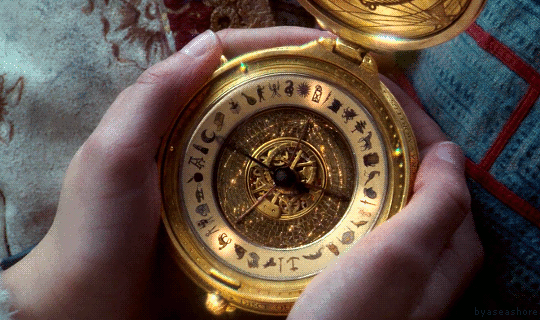
Better Call Saul*
High Maintenance
His Dark Materials*
Westworld
The Nevers
Back on Record
Los Espookys
Raised by Wolves
Batman: Caped Crusader
FBoy Island
Degrassi: The Next Generation
Legendary
Little Ellen
Made for Love
Time Traveler's Wife
Love Life
Close Enough
Gordita Chronicles
Sweet Life: Los Angeles
Minx
Demimonde
Other Cancelations
Hunters* (Prime Video)
The Marvelous Mrs. Maisel* (Prime Video)
Servant (Apple TV+)
Snowpiercer* (TNT)
Star Trek: Picard* (Paramount+)
Carnival Row (Prime Video)
While this is certainly not everything that's been canceled from the dozens of streaming services and platforms available, I will most likely update this particular list as we enter 2023 further. It is pretty sad to say goodbye to a show and characters that we've either started to love (or hate) or have loved (or hated) for some time. Hopefully, that is the end of what I've called mass cancelation. Regardless, I hope everyone has a remarkable 2023!
Think I'm missing something, or is something listed in error? Feel free to let me know!
#time traveler's wife#the nevers#westworld#his dark materials#seal#the midnight club#raised by wolves#the imperfects#see#servant#kenan#netflix#hbo#hbo max#abc#nbc#cbs#showtime#tnt#snowpiercer#animal kingdom#tbs#mtv#hulu#love victor#dollface#fx#fox#atlanta#snowfall
1 note
·
View note
Text
BOOKS BY ASIAN AUTHORS MASTERLIST #stopasianhate
In light of recent events and the growing anti- Asian hate in the US and UK over the course of the pandemic I wanted to put together a masterlist of books by Asian authors. Obviously, it’s not extensive and there are HUNDREDS out there, but supporting art by Asian creators is a way of showing support; read their stories, educate ourselves. It goes without saying that we should all be putting effort into reading stories of POC and by POC because even through fiction we’re learning about different cultures, countries and heritages. So here’s some books to start with by Asian authors!
Here is a link also for resources to educate and petitions to sign (especially if you don’t read haha). It’s important that we educate ourselves and uplift Asian voices right now. Your anti-racism has to include every minority that faces it.
https://anti-asianviolenceresources.carrd.co/
for UK peeps, this is a good read: We may not hear about the anti Asian racism happening here, but it is definitely happening. https://www.harpersbazaar.com/uk/culture/culture-news/a35692226/its-time-we-stopped-downplaying-the-uks-anti-asian-racism/
THE BOOKS:
· War Cross- Marie Lu ( the worldbuilding in this is IMMENSE.)
For the millions who log in every day, Warcross isn’t just a game—it’s a way of life. The obsession started ten years ago and its fan base now spans the globe, some eager to escape from reality and others hoping to make a profit.
· Star Daughter- Shveta Thakrar
A beautiful story about a girl who is half human and half star, and she must go to the celestial court to try to save her father after he has fallen ill. And before she knows it, she is taking part in a magical competition that she must win!
· These Violent Delights- Chloe Gong (I told my little sister to read this book yesterday bc she has a thing for a Leo as Romeo- so if you want deadly good looking Romeos, badass Juliet’s and to learn about 1920s Shanghai- this is for you.)
The year is 1926, and Shanghai hums to the tune of debauchery. A blood feud between two gangs runs the streets red, leaving the city helpless in the grip of chaos. A Romeo and Juliet retelling.
· The Poppy War- R.F Kuang (My fave fantasy series just fyi- it’s soul crushing in the best way. Rebecca Kuang is a god of an author).
A brilliantly imaginative talent makes her exciting debut with this epic historical military fantasy, inspired by the bloody history of China’s twentieth century and filled with treachery and magic, in the tradition of Ken Liu’s Grace of Kings and N.K. Jemisin’s Inheritance Trilogy.
· Loveboat Taipei- Abigail Hing Wen (Really heartwarming and insightful!)
When eighteen-year-old Ever Wong’s parents send her from Ohio to Taiwan to study Mandarin for the summer, she finds herself thrust among the very over-achieving kids her parents have always wanted her to be, including Rick Woo, the Yale-bound prodigy profiled in the Chinese newspapers since they were nine—and her parents’ yardstick for her never-measuring-up life.
· Sorcerer to the Crown- Zen Cho (if anyone is looking for another Howl’s Moving Castle, look no further than this book)
At his wit’s end, Zacharias Wythe, freed slave, eminently proficient magician, and Sorcerer Royal of the Unnatural Philosophers—one of the most respected organizations throughout all of Britain—ventures to the border of Fairyland to discover why England’s magical stocks are drying up.
· Emergency Contact- Mary H.K. Choi (very wholesome and fun rom-com!)
For Penny Lee high school was a total nonevent. When she heads to college in Austin, Texas, to learn how to become a writer, it’s seventy-nine miles and a zillion light years away from everything she can’t wait to leave behind.
· Jade City- Fonda Lee (I am reading this currently and can I just say- I think everyone who loves fantasy and blood feuds in a story should read this.)
JADE CITY is a gripping Godfather-esque saga of intergenerational blood feuds, vicious politics, magic, and kungfu. The Kaul family is one of two crime syndicates that control the island of Kekon. It's the only place in the world that produces rare magical jade, which grants those with the right training and heritage superhuman abilities.
· A Pho Love Story- Loan Le
When Dimple Met Rishi meets Ugly Delicious in this funny, smart romantic comedy, in which two Vietnamese-American teens fall in love and must navigate their newfound relationship amid their families’ age-old feud about their competing, neighbouring restaurants.
· Rebelwing- Andrea Tang
Business is booming for Prudence Wu. A black-market-media smuggler and scholarship student at the prestigious New Columbia Preparatory Academy, Pru is lucky to live in the Barricade Coalition where she is free to study, read, watch, and listen to whatever she wants.
· Wings of the Locust- Joel Donato Ching Jacob
Tuan escapes his mundane and mediocre existence when he is apprenticed to Muhen, a charming barangay wiseman. But, as he delves deeper into the craft of a mambabarang and its applications in espionage, sabotage and assassination, the young apprentice is overcome by conflicting emotions that cause him to question his new life.
· The Travelling Cat Chronicles- Hiro Arikawa
Sometimes you have to leave behind everything you know to find the place you truly belong...
Nana the cat is on a road trip. He is not sure where he's going or why, but it means that he gets to sit in the front seat of a silver van with his beloved owner, Satoru.
· Super Fake Love Song- David Yoon
From the bestselling author of Frankly in Love comes a contemporary YA rom-com where a case of mistaken identity kicks off a string of (fake) events that just may lead to (real) love.
· Parachutes- Kelly Yang
Speak enters the world of Gossip Girl in this modern immigrant story from New York Times bestselling author Kelly Yang about two girls navigating wealth, power, friendship, and trauma.
· The Grace of Kings- Ken Liu ( One of the Time 100 Best Fantasy Books Of All Time!)
Two men rebel together against tyranny—and then become rivals—in this first sweeping book of an epic fantasy series from Ken Liu, recipient of Hugo, Nebula, and World Fantasy awards.
· Wicked Fox- Kat Cho
A fresh and addictive fantasy-romance set in modern-day Seoul.
· Descendant of the Crane- Joan He
In this shimmering Chinese-inspired fantasy, debut author Joan He introduces a determined and vulnerable young heroine struggling to do right in a world brimming with deception.
· Pachinko- Min Jin Lee
Richly told and profoundly moving, Pachinko is a story of love, sacrifice, ambition, and loyalty. From bustling street markets to the halls of Japan's finest universities to the pachinko parlors of the criminal underworld, Lee's complex and passionate characters--strong, stubborn women, devoted sisters and sons, fathers shaken by moral crisis--survive and thrive against the indifferent arc of history.
· America is in the Heart- Carlos Bulosan
First published in 1946, this autobiography of the well known Filipino poet describes his boyhood in the Philippines, his voyage to America, and his years of hardship and despair as an itinerant laborer following the harvest trail in the rural West.
· Days of Distraction- Alexandra Chang
A wry, tender portrait of a young woman — finally free to decide her own path, but unsure if she knows herself well enough to choose wisely—from a captivating new literary voice.
· The Astonishing Colour of After Emily X.R Pan
Alternating between real and magic, past and present, friendship and romance, hope and despair, The Astonishing Color of After is a novel about finding oneself through family history, art, grief, and love.
· The Gilded Wolves- Roshani Chokshi
It's 1889. The city is on the cusp of industry and power, and the Exposition Universelle has breathed new life into the streets and dredged up ancient secrets. Here, no one keeps tabs on dark truths better than treasure-hunter and wealthy hotelier Séverin Montagnet-Alarie. When the elite, ever-powerful Order of Babel coerces him to help them on a mission, Séverin is offered a treasure that he never imagined: his true inheritance.
· When Dimple met Rishi- Sandhya Menon
Dimple and Rishi may think they have each other figured out. But when opposites clash, love works hard to prove itself in the most unexpected ways.
· On Earth we’re briefly Gorgeous- Ocean Vuong
Poet Ocean Vuong's debut novel is a shattering portrait of a family, a first love, and the redemptive power of storytelling.
· Fierce Fairytales- Nikita Gill
Complete with beautifully hand-drawn illustrations by Gill herself, Fierce Fairytales is an empowering collection of poems and stories for a new generation.
BOOKS BEING RELEASED LATER THIS YEAR TO PREORDER:
· Counting down with you- Tashie Bhuiyan- 4th May
A reserved Bangladeshi teenager has twenty-eight days to make the biggest decision of her life after agreeing to fake date her school’s resident bad boy.
How do you make one month last a lifetime?
· Gearbreakers- Zoe Hana Mikuta- June 29th
Two girls on opposite sides of a war discover they're fighting for a common purpose--and falling for each other--in Zoe Hana Mikuta's high-octane debut Gearbreakers, perfect for fans of Pacific Rim, Pierce Brown's Red Rising Saga, and Marie Lu's Legend series
· XOXO- Axie Oh- 13th July
When a relationship means throwing Jenny’s life off the path she’s spent years mapping out, she’ll have to decide once and for all just how much she’s willing to risk for love.
· She who became the sun- Shelley Parker-Chan- 20th July
Mulan meets The Song of Achilles in Shelley Parker-Chan's She Who Became the Sun, a bold, queer, and lyrical reimagining of the rise of the founding emperor of the Ming Dynasty from an amazing new voice in literary fantasy.
· Jade Fire Gold- June C.L Tan- October 12th
Two girls on opposite sides of a war discover they're fighting for a common purpose--and falling for each other--in Zoe Hana Mikuta's high-octane debut Gearbreakers, perfect for fans of Pacific Rim, Pierce Brown's Red Rising Saga, and Marie Lu's Legend series
Keep sharing, signing petitions and donating where you can. The more people who are actively anti-racist, the better. And if your anti-racism doesn’t include the Asian community then go and educate yourself! BLM wasn’t a trend and neither is this. We have to stand up against white supremacy, and racism and stereotypes and we have to support the communities that need our support. Part of that can include cultivating your reading so you’re reading more diversely and challenging any stereotypes western society may have given you.
Feel free to reblog and add any more recommendations and resources of course!
#stopasianhate#books by asian authors#anti racism#i'm so sickened by everything that's happening and i hope that this list does encourage people to read books by asian authors!!!#ya#poc authors#fiction#i haven't all of these yet#asian writers#asian authors#masterlist#antiasianracism
100 notes
·
View notes
Text
Black Wolves Saga Last Hope Memory 221: El telón cae [Ruta gatos]

La protagonista desconoce el motivo por el que salvó a Auger. Sin embargo…

Auger: Ah. ¡Ah!
Fiona: ¿Qué pasa Auger? ¿Quieres que juegue contigo?
Auger: ¡Hm!
Fioma: Hm… Pero parece que todavía no puedes mover tus dedos. Confórmate con esto, ¿sí?
Tras decir esto, acaricié su cabeza y Auger siguió los movimientos de mi mano con su mirada.

Auger: Nn… Ah… Aah…
Tras reír con satisfacción soltó un leve bostezo.
Fiona: ¿Tienes sueño?
Auger: ¡Hm!
Negó con la cabeza. Parece que simplemente le hace feliz que le preste atención.
Fiona: Te has vuelto bastante inocente… Auger.
Zara: …Parece que sigue igual que siempre.

Auger: Ugh… ¡Uuh!
Fiona: Igual que siempre… Parece que no le gusta verte, Zara.
Tan pronto como Zara entra en su rango de visión Auger procede a hacer una mueca de disgusto, así que volví a acariciar su cabeza.
Auger: …Kya.

Y al hacer eso Auger sonrió. Era maravilloso.
Mientras acariciaba la cabeza del recostado Auger dirigí mi mirada hacia Zara, él tenía una expresión seria.
Zara: No voy a quitarte a tu persona favorita, Auger… ¿Cómo está su salud?
Fiona: Pues… Todavía no es capaz de hablar y las heridas de su cuerpo siguen siendo visibles. Todavía es difícil saber si se encuentra consiente.
Fiona: Sin embargo, llora cuando tiene hambre, llora cuando quiere que le preste atención y ríe cuando juego con él.
Fiona: Es como… un bebé.
Zara: Como imaginaba, el suministro de oxígeno que recibía su cerebro se cortó durante tanto tiempo que al final le acabó generando un trastorno…
Fiona: Sí…
Zara: Se lo he dicho varias veces, pero si este síntoma sigue persistiendo, entonces es probable que no consiga recuperarse.
Zara: Aun así… ¿No piensa rendirse?
Fiona: No me rendiré. Ya que… puede llorar y reír.
Al principio Auger era como una planta. No se movía y tampoco hablaba.
Pero ahora expresa emociones tal y como lo haría un bebé. Llora y ríe.
Fiona: Además, acabas de verlo, ¿o no Zara? Él nos está mirando… está progresando.
Fiona: Por eso no me rendiré.
Zara: …Tiene razón, cuando me mira a mí frunce el ceño, pero cuando la ve a usted sonríe.
Zara: Al menos yo no imaginaba que se recuperaría tanto.
Fiona: ¡¿Verdad?!
Zara: Ahora… solo queda esperar que el tiempo nos diga si conseguirá mejorarse.
Zara: En cierto sentido el tiempo de Auger-sama ya no se encuentra ligado a nadie.
Zara: …Ya que por el bien de Weblin se anunció que él falleció junto a Mejojo-sama.
Fiona: Sí… es verdad.
Zara: Si sucede algo envíeme un caballo. Su condición parece haber mejorado, pero mientras las heridas persistan lo mejor sería no bajar la guardia.
Fiona: ¿Eh? ¿Ya te vas?
Zara: Sí, a fin de cuentas Auger-sama no deja de mirarme feo.
Fiona: ¿Eh?
Zara: Con permiso.
Fiona: Ah, sí. Ve con cuidado.
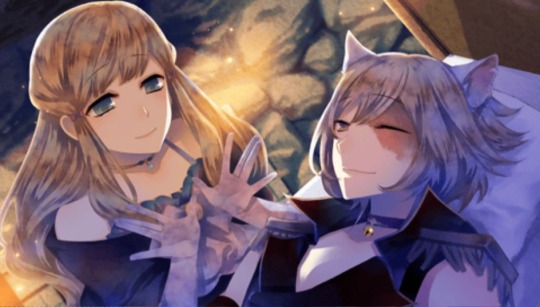
Auger: ¿…?
Tal y como esperaba, tras despedir a Zara y darme la vuelta vi a Auger sonriendo de oreja a oreja al verme.
…Como pensé, es muy inocente. Tiene una sonrisa ignorante e inocente.
Fiona: …Que raro. En serio… ¿Qué significa esto?
Auger era alguien molestoso, malo, que nunca mostraba sus verdaderas intenciones, alguien que te atacaría tan pronto bajaras la guardia.
Fiona: ¿Entonces por qué ahora puedes sonreír de forma tan pura e inocente?
Auger: ¿Uh?
A pesar de que era algo bueno, sentía que no era suficiente. Aún no puedo creer que me sienta así.
Pero… Aunque haya sido de a poco, ha conseguido recuperarse hasta este punto.
Puede que algún día consiga recuperarse por completo. No quería abandonar esa esperanza.
Fiona: Date prisa y recupérate.
Tomé la mano de Auger, que era incapaz de mover siquiera un solo dedo por su cuenta y la acaricié suavemente.
Auger: ¡Hm!
Parecía que le había hecho cosquillas y rió, tras eso me incliné y puse mis labios sobre él.

Fiona: Te estaré esperando.
Auger sonrió cuando le di un beso en su mejilla.
Era una expresión que jamás había visto antes de aquel incidente.
Fiona: (Puede que ahora sea una persona completamente distinta.)
Auger: ¡Hm! ¡Hm~~!
Fiona: (Auger ha muerto.)
A veces pienso eso. Ya que es demasiado distinto del Auger que conocía.
Pero incluso si lo ha olvidado todo.
Si eso permite que Auger pueda experimentar una nueva vida, una en la que sea feliz, entonces no sería algo malo.
Si puede renacer. Si puede liberarse de aquel mundo abominable y empezar una nueva vida.
Fiona: En tal caso, ¿serías feliz?
Le hice esa pregunta a Auger mientras él esbozaba una adorable sonrisa.
…A pesar de que sé que no me responderá.
Es posible que Auger tuviera un pasado que lo atormentara.
Yo no sé si fue así, pero—
Estoy segura de que Auger cargaba con algún tipo de oscuridad.
No tengo bases para fundamentar eso… sin embargo, me pregunto si a Mejojo y Auger—
Les habrá sucedido algo en el pasado.
Actualmente lo desconozco. Y tampoco puedo preguntarle a Auger.
Pero—
Algún día lo sabré.
Estoy segura.
Fiona: Auger… Algún día cuéntame sobre ti, ¿sí?
Fiona: También puedes quedarte así. Puedes iniciar desde cero.
Mientras Auger me miraba toqué levemente su mejilla con la punta de mis dedos.
Auger: ¡Hm!
Auger: ¡Hm~~~!
Él se sacudió como si le hubieran hecho cosquillas. Al verlo así yo también me reí.
Fiona: Fufu, haz un poco menos de escándalo. Eres un buen niño, Auger.
Fiona: Se supone que estás muerto, Auger. Todos se sorprenderán si te encuentran.
Lentamente me puse de pie mientras le hablaba.
Fiona: Bueno, voy a traer algo de beber. Espérame un momento, Auger.
A Auger le gusta la leche. Voy a prepararle eso.
Con una sonrisa me dirigí a la cocina—.

Auger: Aaah… Esto ya~.
Auger: Me está aburriendo.
~Fin~
Anterior [GOOD END 1/2 220 Monólogo]
[Masterpost]
#black wolves saga last hope#black wolves saga#memory 221#auger von garibaldi#fiona galland#zara skeens#GOOD END
18 notes
·
View notes
Photo

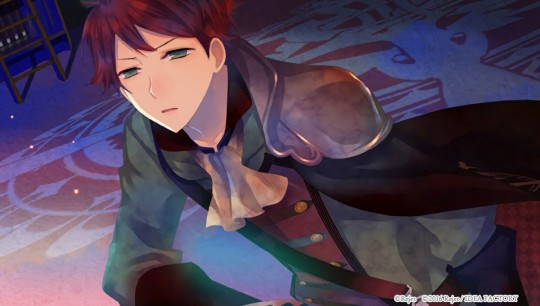


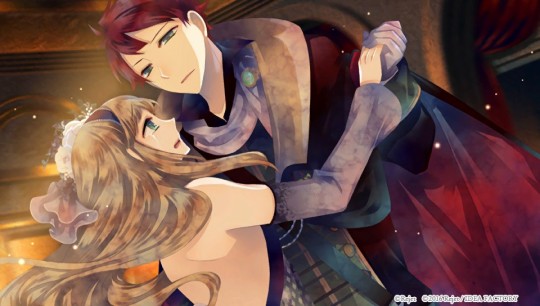

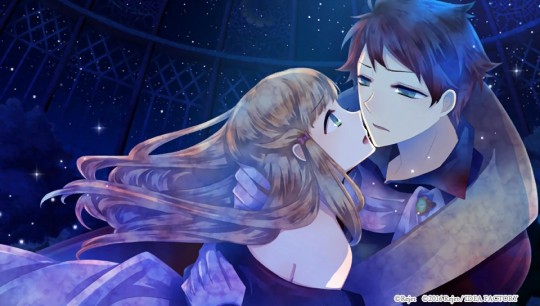
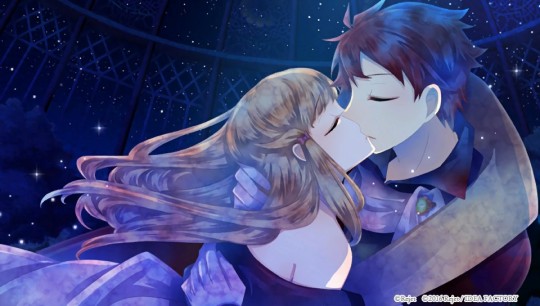
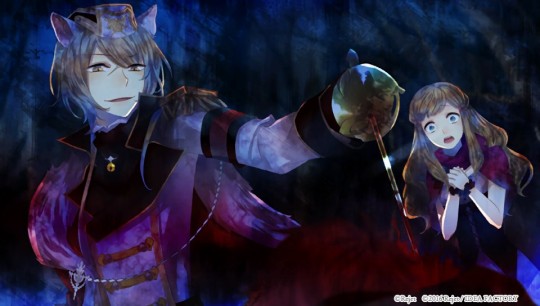
Black Wolves Saga -Weiβ und Schwarz-
↳ Last Hope
Nesso Galland - CG (2)
#Black Wolves Saga CG#Black Wolves Saga#Black Wolves Saga -Weiβ und Schwarz-#Black wolves Saga Last Hope#my post#my cg#otome#otome game#Otome Game CG#cg art#rejet#otomate#Idea Factory#Kuroyuki#Mejojo von Garibaldi#Auger von Garibaldi#Fiona Galland#Nesso Galland#Elza Clifford
17 notes
·
View notes
Note
what do you think of the whole actor in shrine situation? is this why you're moving away from s/h//l?
lol

A medieval fisherman is said to have hauled up a three-foot-long cod, which was common enough at the time. And the fact that the cod could talk was not especially surprising. But what was astonishing was that it spoke an unknown language. It spoke Basque.
This Basque folktale shows not only the Basque attachment to their orphan language, indecipherable to the rest of the world, but also their tie to the Atlantic cod, Gadus morhua, a fish that has never been found in Basque or even Spanish waters.
The Basques are enigmatic. They have lived in what is now the northwest corner of Spain and a nick of the French southwest for longer than history records, and not only is the origin of their language unknown, but the origin of the people themselves remains a mystery also. According to one theory, these rosy-cheeked, dark-haired, long-nosed people were the original Iberians, driven by invaders to this mountainous corner between the Pyrenees, the Cantabrian Sierra, and the Bay of Biscay. Or they may be indigenous to this area.
They graze sheep on impossibly steep, green slopes of mountains that are thrilling in their rare, rugged beauty. They sing their own songs and write their own literature in their own language, Euskera. Possibly Europe’s oldest living language, Euskera is one of only four European languages—along with Estonian, Finnish, and Hungarian—not in the Indo-European family. They also have their own sports, most notably jai alai, and even their own hat, the Basque beret, which is bigger than any other beret.
Though their lands currently reside in three provinces of France and four of Spain, Basques have always insisted that they have a country, and they call it Euskadi. All the powerful peoples around them—the Celts and Romans, the royal houses of Aquitaine, Navarra, Aragon, and Castile; later Spanish and French monarchies, dictatorships, and republics—have tried to subdue and assimilate them, and all have failed. In the 1960s, at a time when their ancient language was only whispered, having been outlawed by the dictator Francisco Franco, they secretly modernized it to broaden its usage, and today, with only 800,000 Basque speakers in the world, almost 1,000 titles a year are published in Euskera, nearly a third by Basque writers and the rest translations.
“Nire aitaren etxea / defendituko dut. / Otsoen kontra” (I will defend / the house of my father. / Against the wolves) are the opening lines of a famous poem in modern Euskera by Gabriel Aresti, one of the fathers of the modernized tongue. Basques have been able to maintain this stubborn independence, despite repression and wars, because they have managed to preserve a strong economy throughout the centuries. Not only are Basques shepherds, but they are also a seafaring people, noted for their successes in commerce. During the Middle Ages, when Europeans ate great quantities of whale meat, the Basques traveled to distant unknown waters and brought back whale. They were able to travel such distances because they had found huge schools of cod and salted their catch, giving them a nutritious food supply that would not spoil on long voyages.
Basques were not the first to cure cod. Centuries earlier, the Vikings had traveled from Norway to Iceland to Greenland to Canada, and it is not a coincidence that this is the exact range of the Atlantic cod. In the tenth century, Thorwald and his wayward son, Erik the Red, having been thrown out of Norway for murder, traveled to Iceland, where they killed more people and were again expelled. About the year 985, they put to sea from the black lava shore of Iceland with a small crew on a little open ship. Even in midsummer, when the days are almost without nightfall, the sea there is gray and kicks up whitecaps. But with sails and oars, the small band made it to a land of glaciers and rocks, where the water was treacherous with icebergs that glowed robin’s-egg blue. In the spring and summer, chunks broke off the glaciers, crashed into the sea with a sound like thunder that echoed in the fjords, and sent out huge waves. Eirik, hoping to colonize this land, tried to enhance its appeal by naming it Greenland.
Almost 1,000 years later, New England whalers would sing: “Oh, Greenland is a barren place / a place that bears no green / Where there’s ice and snow / and the whale fishes blow / But daylight’s seldom seen.”
Eirik colonized this inhospitable land and then tried to push on to new discoveries. But he injured his foot and had to be left behind. His son, Leifur, later known as Leif Eiriksson, sailed on to a place he called Stoneland, which was probably the rocky, barren Labrador coast. “I saw not one cartload of earth, though I landed many places,” Jacques Cartier would write of this coast six centuries later. From there, Leif’s men turned south to “Woodland” and then “Vineland.” The identity of these places is not certain. Woodland could have been Newfoundland, Nova Scotia, or Maine, all three of which are wooded. But in Vineland they found wild grapes, which no one else has discovered in any of these places.
The remains of a Viking camp have been found in Newfoundland. It is perhaps in that gentler land that the Vikings were greeted by inhabitants they found so violent and hostile that they deemed settlement impossible, a striking assessment to come from a people who had been regularly banished for the habit of murdering people. More than 500 years later the Beothuk tribe of Newfoundland would prevent John Cabot from exploring beyond crossbow range of his ship. The Beothuk apparently did not misjudge Europeans, since soon after Cabot, they were enslaved by the Portuguese, driven inland, hunted by the French and English, and exterminated in a matter of decades.
How did the Vikings survive in greenless Greenland and earthless Stoneland? How did they have enough provisions to push on to Woodland and Vineland, where they dared not go inland to gather food, and yet they still had enough food to get back? What did these Norsemen eat on the five expeditions to America between 985 and 1011 that have been recorded in the Icelandic sagas? They were able to travel to all these distant, barren shores because they had learned to preserve codfish by hanging it in the frosty winter air until it lost four-fifths of its weight and became a durable woodlike plank. They could break off pieces and chew them, eating it like hardtack. Even earlier than Eirik’s day, in the ninth century, Norsemen had already established plants for processing dried cod in Iceland and Norway and were trading the surplus in northern Europe.
The Basques, unlike the Vikings, had salt, and because fish that was salted before drying lasted longer, the Basques could travel even farther than the Vikings. They had another advantage: The more durable a product, the easier it is to trade. By the year 1000, the Basques had greatly expanded the cod markets to a truly international trade that reached far from the cod’s northern habitat.
In the Mediterranean world, where there were not only salt deposits but a strong enough sun to dry sea salt, salting to preserve food was not a new idea. In preclassical times, Egyptians and Romans had salted fish and developed a thriving trade. Salted meats were popular, and Roman Gaul had been famous for salted and smoked hams. Before they turned to cod, the Basques had sometimes salted whale meat; salt whale was found to be good with peas, and the most prized part of the whale, the tongue, was also often salted.
Until the twentieth-century refrigerator, spoiled food had been a chronic curse and severely limited trade in many products, especially fish. When the Basque whalers applied to cod the salting techniques they were using on whale, they discovered a particularly good marriage because the cod is virtually without fat, and so if salted and dried well, would rarely spoil. It would outlast whale, which is red meat, and it would outlast herring, a fatty fish that became a popular salted item of the northern countries in the Middle Ages.
Even dried salted cod will turn if kept long enough in hot humid weather. But for the Middle Ages it was remarkably long-lasting—a miracle comparable to the discovery of the fast-freezing process in the twentieth century, which also debuted with cod. Not only did cod last longer than other salted fish, but it tasted better too. Once dried or salted—or both—and then properly restored through soaking, this fish presents a flaky flesh that to many tastes, even in the modern age of refrigeration, is far superior to the bland white meat of fresh cod. For the poor who could rarely afford fresh fish, it was cheap, high-quality nutrition.
In 1606, Gudbrandur Thorláksson, an Icelandic bishop, made this line drawing of the North Atlantic in which Greenland is represented in the shape of a dragon with a fierce, toothy mouth. Modern maps show that this is not at all the shape of Greenland, but it is exactly what it looks like from the southern fjords, which cut jagged gashes miles deep into the high mountains. (Royal Library, Copenhagen)
Catholicism gave the Basques their great opportunity. The medieval church imposed fast days on which sexual intercourse and the eating of flesh were forbidden, but eating “cold” foods was permitted. Because fish came from water, it was deemed cold, as were waterfowl and whale, but meat was considered hot food. The Basques were already selling whale meat to Catholics on “lean days,” which, since Friday was the day of Christ’s crucifixion, included all Fridays, the forty days of Lent, and various other days of note on the religious calendar. In total, meat was forbidden for almost half the days of the year, and those lean days eventually became salt cod days. Cod became almost a religious icon—a mythological crusader for Christian observance.
The Basques were getting richer every Friday. But where was all this cod coming from? The Basques, who had never even said where they came from, kept their secret. By the fifteenth century, this was no longer easy to do, because cod had become widely recognized as a highly profitable commodity and commercial interests around Europe were looking for new cod grounds. There were cod off of Iceland and in the North Sea, but the Scandinavians, who had been fishing cod in those waters for thousands of years, had not seen the Basques. The British, who had been fishing for cod well offshore since Roman times, did not run across Basque fishermen even in the fourteenth century, when British fishermen began venturing up to Icelandic waters. The Bretons, who tried to follow the Basques, began talking of a land across the sea.
Bench ends from St. Nicolas’ Chapel in a town by the North Sea, King’s Lynn, Norfolk, England, carved circa 1415, depict the cod fishery. (Victoria and Albert Museum, London)
In the 1480s, a conflict was brewing between Bristol merchants and the Hanseatic League. The league had been formed in thirteenth-century Lübeck to regulate trade and stand up for the interests of the merchant class in northern German towns. Hanse means “fellowship” in Middle High German. This fellowship organized town by town and spread throughout northern Europe, including London. By controlling the mouths of all the major rivers that ran north from central Europe, from the Rhine to the Vistula, the league was able to control much of European trade and especially Baltic trade. By the fourteenth century, it had chapters as far north as Iceland, as far east as Riga, south to the Ukraine, and west to Venice.
For many years, the league was seen as a positive force in northern Europe. It stood up against the abuses of monarchs, stopped piracy, dredged channels, and built lighthouses. In England, league members were called Easterlings because they came from the east, and their good reputation is reflected in the word sterling, which comes from Easterling and means “of assured value.”
But the league grew increasingly abusive of its power and ruthless in defense of trade monopolies. In 1381, mobs rose up in England and hunted down Hanseatics, killing anyone who could not say bread and cheese with an English accent.
The Hanseatics monopolized the Baltic herring trade and in the fifteenth century attempted to do the same with dried cod. By then, dried cod had become an important product in Bristol. Bristol’s well-protected but difficult-to-navigate harbor had greatly expanded as a trade center because of its location between Iceland and the Mediterranean. It had become a leading port for dried cod from Iceland and wine, especially sherry, from Spain. But in 1475, the Hanseatic League cut off Bristol merchants from buying Icelandic cod.
Thomas Croft, a wealthy Bristol customs official, trying to find a new source of cod, went into partnership with John Jay, a Bristol merchant who had what was at the time a Bristol obsession: He believed that somewhere in the Atlantic was an island called Hy-Brasil. In 1480, Jay sent his first ship in search of this island, which he hoped would offer a new fishing base for cod. In 1481, Jay and Croft outfitted two more ships, the Trinity and the George. No record exists of the result of this enterprise. Croft and Jay were as silent as the Basques. They made no announcement of the discovery of Hy-Brasil, and history has written off the voyage as a failure. But they did find enough cod so that in 1490, when the Hanseatic League offered to negotiate to reopen the Iceland trade, Croft and Jay simply weren’t interested anymore.
Where was their cod coming from? It arrived in Bristol dried, and drying cannot be done on a ship deck. Since their ships sailed out of the Bristol Channel and traveled far west of Ireland and there was no land for drying fish west of Ireland—Jay had still not found Hy-Brasil—it was suppposed that Croft and Jay were buying the fish somewhere. Since it was illegal for a customs official to engage in foreign trade, Croft was prosecuted. Claiming that he had gotten the cod far out in the Atlantic, he was acquitted without any secrets being revealed.
To the glee of the British press, a letter has recently been discovered. The letter had been sent to Christopher Columbus, a decade after the Croft affair in Bristol, while Columbus was taking bows for his discovery of America. The letter, from Bristol merchants, alleged that he knew perfectly well that they had been to America already. It is not known if Columbus ever replied. He didn’t need to. Fishermen were keeping their secrets, while explorers were telling the world. Columbus had claimed the entire new world for Spain.
Then, in 1497, five years after Columbus first stumbled across the Caribbean while searching for a westward route to the spice-producing lands of Asia, Giovanni Caboto sailed from Bristol, not in search of the Bristol secret but in the hopes of finding the route to Asia that Columbus had missed. Caboto was a Genovese who is remembered by the English name John Cabot, because he undertook this voyage for Henry VII of England. The English, being in the North, were far from the spice route and so paid exceptionally high prices for spices. Cabot reasoned correctly that the British Crown and the Bristol merchants would be willing to finance a search for a northern spice route. In June, after only thirty-five days at sea, Cabot found land, though it wasn’t Asia. It was a vast, rocky coastline that was ideal for salting and drying fish, by a sea that was teeming with cod. Cabot reported on the cod as evidence of the wealth of this new land,
New Found Land, which he claimed for England. Thirty-seven years later, Jacques Cartier arrived, was credited with “discovering” the mouth of the St. Lawrence, planted a cross on the Gaspé Peninsula, and claimed it all for France. He also noted the presence of 1,000 Basque fishing vessels. But the Basques, wanting to keep a good secret, had never claimed it for anyone.
17 notes
·
View notes
Text
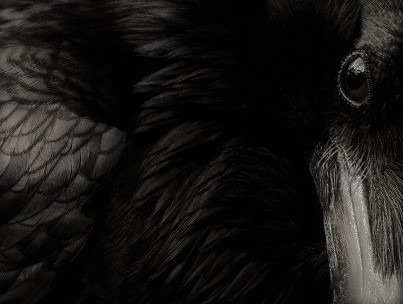
Odin
Norse god of wisdom, knowledge, poetry, war, victory, sovereignty, divination, and magick
One of Odin’s countless titles is “All-father” (Old Norse: Alfaðir), since he is essentially the father of all of the Norse gods and was believed to be the divine ancestor of countless families from all over northern Europe. He is simultaneously an Aesir god, a Vanir god (the Vanir god Odr is only an extension or transposition of Odin), and a jötunn (ancient giant). Odin’s mother, Bestla, was one of the first frost-giants. One Old Norse poem even identifies him with önd, the breath of life. Furthermore, Odin is also the discoverer of the Runic alphabet and is married to the mother-goddess Frigg.
Appearance and Roles: Old Norse texts portray Odin as one-eyed and long-bearded, frequently wielding a spear named Gungnir and wearing a cloak and a broad hat. One of the most striking attributes of his appearance is his single, piercing eye. His other eye socket is empty – the eye it once held was sacrificed by himself in order to gain wisdom. Odin is often accompanied by his animal companions and familiars—the wolves Geri and Freki and the ravens Huginn and Muninn, who bring him information from all over Midgard—and rides the flying, eight-legged steed Sleipnir across the sky and into the Underworld. Odin is the son of Bestla and Borr and has two brothers, Vili and Vé. Odin is attested as having many sons, most famously the gods Thor (with Jörð) and Baldr (with Frigg), and is known by hundreds of names. In these texts he frequently seeks greater knowledge, at times in disguise (most famously by obtaining the Mead of Poetry), makes wagers with his wife Frigg over the outcome of exploits, and takes part both in the creation of the world by way of slaying the primordial being Ymir and in giving the gift of life to the first two humans, Ask and Embla. Odin has a particular association with the festival of Yule, and mankind's knowledge of both the runes and poetry is also attributed to him.
Old Norse texts also state that female entities connected with the battlefield—the valkyries—were led by Odin, since he oversees Valhalla, where he receives half of those who die in battle, the einherjar, the honourable warriors. The other half are then claimed by the goddess Freyja for her afterlife location, Fólkvangr. Odin also is said to consult the disembodied, herb-embalmed head of the wise being Mímir for advice, and during the foretold events of Ragnarök Odin is told to lead the einherjar into battle before being consumed by the monstrous wolf Fenrir. In later folklore Odin appears as a leader of the Wild Hunt, a ghostly procession of the dead through the winter sky. He is also associated with charms and other forms of magic, particularly in Old English and Old Norse texts.
As a god of sovereignty, Odin is paradoxically also the favourite god and helper of outlaws, those who have been banished from society for some especially heinous crime, as well. Like Odin, many such men were exceptionally strong-willed warrior-poets who were apathetic to established societal norms – Egill Skallagrímsson (Egil’s Saga) and Grettir Ásmundarson (The Saga of Grettir the Strong) are two examples. The late twelfth/early thirteenth-century Danish historian Saxo Grammaticus even relates a tale of Odin being outlawed from Asgard for ten years so that the other gods and goddesses wouldn’t be tarnished by the vile reputation he had acquired amongst many humans. Whatever their social stature, the humans favored by Odin are distinguished by their intelligence, creativity, and competence in the proverbial “war of all against all”. For Odin, any kind of limitation is something to be overcome by any means necessary, and his actions are carried out within the context of a relentless and ruthless quest for more wisdom, knowledge, and power, usually of a magical sort.
Odin’s competitive side once drove him to challenge the wisest of the jǫtnar (giants) to a contest to see who was more knowledgeable. The reward was to be the head of the loser, and Odin won this challenge by asking his opponent something that only he himself could know. Odin then claimed his prize and returned to Asgard. Along with Freyja, he is one of the two greatest practitioners of shamanism amongst the gods. The Ynglinga Saga records that Odin often “travels to distant lands on his own errands or those of others” while he appears to others to be asleep or dead. Another instance is recorded in the Eddic poem “Baldur’s Dreams,” where Odin rode Sleipnir, an eight-legged horse, to the Underworld in order to consult a dead seeress on behalf of his son. Odin’s mastery of necromancy, the magical art of communicating with and raising the dead, is frequently noted. While there are several reasons Odin maintains this commerce with the dead, including his desire to learn what knowledge and wisdom they possess, the most significant reason is his dread-driven desire to have as many of the best warriors as possible on his side when he must face the wolf Fenrir during Ragnarok – even though he knows that he’s doomed to die in the battle.
Myths: In myth, Odin needed to make a sacrifice of himself in order to obtain great wisdom. This myth displays the great desire for knowledge and wisdom Odin holds, as well as his unstoppable will-power. Odin All-Father was troubled deeply for the whisperings of the Yggdrasil tree had told him the prophecies of the end, of Ragnarök. He had listened and knew of how Surtr the Black would join the giants in their war against the gods, how he would arise out of the flames of Muspell and drown the earth in fire. Odin’s wisdom told him that he could not prevent this end, but he hoped that perhaps, with wisdom, something could be done to have some gods and humans to survive. Odin travelled the Bifrost to Midgard and began to search for the well of Mimir. The well lay beneath the root of Yggdrasil that grew out of Jotunheim. It was kept my Mimir, the man who drank its wisdom each morning and who kept watch over the Gjallar-horn that Heimdallr, the white watcher, will blow on the day of Ragnarök.
After many days of travel, Odin came to the edge of the well deep in Jotunheim. Mimir approached him and took up the horn Gjallar and filled it with good water from the well and gave the horn to Odin to drink. As he drank, his eyes opened and saw visions of great and terrible sufferings that would befall both men and gods. He drank again and saw the ways that gods and men might, in great noble courage, fight and defeat the evils that would surely arise, though at great cost for he saw also his death and the death of the Aesir that lived in Asgard by his side. How mighty Thor would succumb to the venom of the great serpent, and how Loki would come against Heimdallr and would kill one another, he saw his own defeat at the jaws of Fenrir, and many more deaths and failings that would come of Ragnarök.
After witnessing these things, Odin put his hand to his face and plucked out his right eye. The pain was great and searing, but he made no sound nor showed his great suffering. Mimir took the eye and threw it into the well where it sunk deep but glistened like glass, a sign to any who might pass of the price Odin All-Father paid for his wisdom. And Odin returned to Asgard and sat upon his throne and considered the things he had seen.
In another myth, Odin underwent a ritual death and rebirth in order to discover the runes. At the centre of the Norse cosmos stands the great tree Yggdrasil. Yggdrasil’s upper branches cradle Asgard, the home and fortress of the Aesir gods and goddesses, of whom Odin is the chief. Yggdrasil grows out of the Well of Urd, a pool whose fathomless depths hold many of the most powerful forces and beings in the cosmos. Among these beings are the Norns, three sagacious maidens who create the fate of all beings. One of the foremost techniques they use to shape fate is carving runes into Yggdrasil’s trunk. The symbols then carry these intentions throughout the tree, affecting everything in the Nine Worlds. Since the runes’ native home is in the Well of Urd with the Norns, and since the runes do not reveal themselves to any but those who prove themselves worthy of such fearful insights and abilities, Odin hung himself from a branch of Yggdrasil, pierced himself with his spear, and peered downward into the shadowy waters below. He forbade any of the other gods to grant him the slightest aid, not even a sip of water.
And he stared downward, downward, and called to the runes. He survived in this state, teetering on the precipice that separates the living from the dead, for no less than nine days and nights. At the end of the ninth night, he at last perceived shapes in the depths: the runes. They had accepted his sacrifice and shown themselves to him, revealing to him not only their forms, but also the secrets that lie within them. Having fixed this knowledge in his formidable memory, Odin ended his ordeal with a scream of exultation. Having been initiated into the mysteries of the runes, Odin recounted:
“Then I was fertilized and became wise; I truly grew and thrived. From a word to a word I was led to a word, From a work to a work I was led to a work.”
Equipped with the knowledge of how to wield the runes, he became one of the mightiest and most accomplished beings in the cosmos. He learned chants that enabled him to heal emotional and bodily wounds, to bind his enemies and render their weapons worthless, to free himself from constraints, to put out fires, to expose and banish practitioners of malevolent magic, to protect his friends in battle, to wake the dead, to win and keep a lover, and to perform many other feats like these.
Personality: In my personal experiences with Odin, he is withdrawn, reclusive, analytical, methodical, studious, very serious, loves riddles and numbers, is a physiomancer (can divine the future through many methods), and takes oaths very seriously, rarely forgiving anyone who breaks them. He can help with many things, including gaining wisdom and knowledge, magickal prowess, divination, shamanism, spiritual rebirths, cunning, and discovering what truly matters in life so we can move past lesser things. Odin says that he can also assist in protecting against the malicious god Loki, who tricks others into trusting him and then harms them unsuspectingly, or disguises himself as their loved ones in order to hurt them or get his way.
Offerings: beer (all types but prefers dark/stout), meat (pork, all game animals and birds), eggs, courgettis, oak, ash wood, runes, amber, lightning bolt imagery, any form of fortune telling tools (tarot, pendulum, etc.), crow/raven skulls or feathers, black silk, aubergine, wooden bowls, white sandalwood, black peppercorns, cedar, white daisies, cosmic tree imagery, crow/raven statuettes.
134 notes
·
View notes
Note
Uwooo really? Hhahah i love Rath since i laid my eyes on him plus Kaji Yuuki is his seiyuu too soooo qodjaoodjqhsidid sooo excited to play Last Hope... but i must finishing Bloody Nightmare first ;;3;; im still choosing the route hahaha uhmm who is your favorite route on Bws? Hehehe Good luck on your project! Dont forget to rest too~♡
Yeah, I didn’t really pay attention to Rath’s VA in -Bloody Nightmare- because he talked so little, but in -Last Hope-…he sounds fosadjfneaifgood xD. My first playthrough was Mejojo’s route, and I think it’s a good choice for your first route. But he’s definitely not my favorite.
My favorite route in -Bloody Nightmare- is tied between Julian and Auger for very different reasons. Only in Julian’s good ending did I get a sense of real justice in the game. You’re still very early in the game, so you might not know what I mean, but just keep it in mind. Also, I think Fiona gets along especially well with Julian. On the contrary, Auger is a despicable guy. I hate him so much that I can’t help but actually like him, not as a romantic interest but as a character. Personally, I think he’s the most interesting character in the game. So, that’s why his route is one of the top of my list.
8 notes
·
View notes
Note
Sorry if I asked this before but do you know who the rights for the localization of a game has if it was developed by a collaboration of different developers? For example: could Aksys games license Black Wolves Saga? I know it was made by rejet who dislike non-japanese countries but I heard that Otomate (?) was also involved in the making of Black Wolves Saga. And Otomate seems to be quite open to release stuff overseas.
Hey you :) sorry for the late reply! Though to be honest I’m not very versed when it comes to stuff like this either haha. But I would assume that Rejet has the last say in whether their games get localized or not, even if Otomate were involved in the making.
Actually a little while ago Rejet stated that they would also be tweeting in english from now, which gave us overseas fans a little hope that we might get at least some of their games (I really want Ken Ga Kimi). But they haven’t been very active in english from what I can tell. Either way they seem to be at least a little more open to the idea.
Generally things are looking up for the overseas Otome market though, with Bustafellows getting a localization by PQube. So the chance of mayhaps getting some Rejet games in the future doesn’t seem as hopeless as it once did :)
9 notes
·
View notes